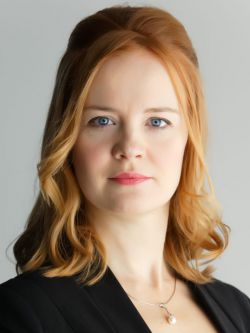The MT Conferences section did not involve the reporting or the editorial staff of The Moscow Times.

Vlasta Skubko
Head of Legal Department
Russia Consulting
Starting from September 2014, a number of important changes to the Civil Code are coming into force. First of all, the term "corporate legal entities" has been introduced. Corporate legal entities (corporations) are organizations in which the founders (participants) have the right of participation (membership) and may appoint a governing body in accordance with Clause 1, Article 65.3 of the Civil Code of the Russian Federation. Such organizations include all commercial legal entities (except unitary enterprises) and some non-profit organizations. Legal entities, in which founders do not become participants and do not acquire membership rights, are unitary legal entities. These include state and municipal enterprises, foundations, institutions, autonomous non-profit organizations, religious organizations and public law companies.
More than one General Director
An interesting change is coming about in respect of governance, and it concerns all corporations which will now have the right to appoint several individuals to act as a sole executive body (General Director/CEO, Director, etc.). Such persons will be authorized to act jointly or individually as set out in the organization's articles of association and reflected in the Unified State Register of Legal Entities. Those changes are intended to enable Russian companies to modernize their corporate governance framework by allowing a second set of eyes to where some or all actions should be performed only in coordination with another authorized person. It is not clear yet whether a combined distribution of powers will be introduced in Russia so that some actions or transactions can be performed individually while others in excess of a certain amount or certain types of transactions (such as those involving real estate or bank loans) will require signatures by two executives. However, it may be difficult to reflect such a combination of independent and joint powers in the Unified Register of Legal Entities, records on which are now quite brief. In any case, one should wait until the amendments to the specific federal laws, "On Limited Liability Companies", "On Joint-Stock Companies" and "On State Registration of Legal Entities" are introduced. These will hopefully clarify the application of the above-mentioned novelty and the new registration procedure.
Abolishment of ZAOs and ODOs
Another important innovation is the elimination of the division of joint-stock companies into closed and open ones. Starting from September, closed joint-stock companies (in Russian — ZAO) will no longer be registered. Existing ZAOs will not be required to re-register, but will have to bring their foundation documents in line with the new law when introducing changes to their articles of association after the law takes effect. Until then, the existing provisions of the law will continue to apply to them. Please note that if a ZAO meets the criteria of a publicly traded company, i.e. its shares and securities can be converted into shares which are publicly placed or publicly traded, they will subject to the public joint-stock companies law. The adopted changes will make joint-stock companies more transparent because the earlier changes to the Civil Code of the Russian Federation, which will take effect on Oct. 1, 2014, have already prevented join-stock companies from keeping internal shareholder registers, obliging them to engage persons duly licensed as profession securities brokers for this purpose. All in all, these changes may push some ZAOs to reorganize as limited liability companies.
In addition, the changes will eliminate the possibility of setting up additional liability companies (ODO) in which participants are responsible for the company's commitments to the extent of their contributions to authorized capital and, where those sums are insufficient, bear additional liability with all of their own property, pro rata to their contributions as per the company's foundation documents. It seems that the elimination of this legal form is long overdue, as it was hardly used in practice — a search on the official website of the Federal Tax Service of Russia (egrul.nalog.ru) showed that there just a little more than 950 ODOs in the register. Existing additional liability companies will now be subject to limited liability companies rules.
Changes in payment of authorized capital
Other amendments to the Civil Code concern payment of authorized capital. Founders of a company will be obliged to pay at least three-quarters of its authorized capital prior to state registration with the balance due until the end of the first year of the company's existence. The previous rule required at least a half of the authorized capital to be paid by the time of registration of a company, with the balance due during the first year of the company's existence. However, a special rule for limited liability companies came into force on May 5, 2014 which states that the authorized capital of an LLC must be paid in full within four months after the registration of the company.
The MT Conferences section did not involve the reporting or the editorial staff of The Moscow Times.
A Message from The Moscow Times:
Dear readers,
We are facing unprecedented challenges. Russia's Prosecutor General's Office has designated The Moscow Times as an "undesirable" organization, criminalizing our work and putting our staff at risk of prosecution. This follows our earlier unjust labeling as a "foreign agent."
These actions are direct attempts to silence independent journalism in Russia. The authorities claim our work "discredits the decisions of the Russian leadership." We see things differently: we strive to provide accurate, unbiased reporting on Russia.
We, the journalists of The Moscow Times, refuse to be silenced. But to continue our work, we need your help.
Your support, no matter how small, makes a world of difference. If you can, please support us monthly starting from just $2. It's quick to set up, and every contribution makes a significant impact.
By supporting The Moscow Times, you're defending open, independent journalism in the face of repression. Thank you for standing with us.
Remind me later.





